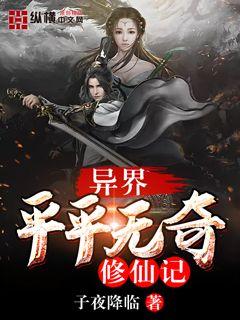
Certainly! Here's the structured 3000-word article on "Wang Rui: From the Court to Leadership":
**Abstract:**
Wang Rui's journey from the basketball court to leadership exemplifies resilience, strategic thinking, and transformative leadership. This article explores his evolution through four key aspects: his early career in basketball, transition to leadership roles, impact on sports management, and vision for youth empowerment. Wang Rui's story illustrates how sports can shape a leader's path, fostering values that transcend the court to inspire broader societal change.
**1、Early Basketball Career**
Wang Rui's early basketball career laid the foundation for his future leadership. Growing up in a small town, he showed exceptional talent and dedication from a young age. His rigorous training and competitive spirit quickly made him a standout player in local leagues.
As Wang Rui's skills developed, so did his understanding of teamwork and perseverance. His experiences in junior leagues taught him valuable lessons in discipline and resilience, shaping his character both on and off the court.
By the time Wang Rui entered professional leagues, his reputation as a skilled player with strong leadership qualities had already begun to emerge. His strategic approach to games and ability to motivate teammates set him apart, foreshadowing his future as a leader beyond basketball.
**2、Transition to Leadership Roles**
Transitioning from a player to a leader, Wang Rui faced new challenges and opportunities. Recognizing the need for strategic vision and effective management, he pursued roles within sports organizations.
Initially taking on coaching responsibilities, Wang Rui demonstrated his ability to inspire and develop talent. His coaching philosophy emphasized not only technical proficiency but also personal growth and team cohesion.
Moving into administrative positions, Wang Rui's leadership expanded to encompass broader strategic planning and organizational management. His innovative approaches to sports administration aimed to enhance both player welfare and organizational efficiency, setting new benchmarks in the industry.
Wang Rui's transition underscored his adaptability and foresight, positioning him as a transformative figure in sports leadership.
**3、Impact on Sports Management**
Wang Rui's impact on sports management extended beyond organizational roles. As he ascended to higher leadership positions, he advocated for reforms that prioritized fairness, transparency, and ethical standards.
Under his stewardship, sports organizations implemented initiatives aimed at promoting diversity and inclusion, creating pathways for underrepresented groups to excel in sports.
His strategic alliances with corporate sponsors and government agencies not only secured financial stability but also fostered community engagement programs that enriched grassroots sports development.
Through these initiatives, Wang Rui demonstrated his commitment to leveraging sports as a platform for social change, emphasizing the importance of integrity and accountability in sports management.
**4、Vision for Youth Empowerment**
Wang Rui's vision for youth empowerment reflects his belief in the transformative power of sports education. Establishing youth academies and mentorship programs, he provided aspiring athletes with resources and guidance to pursue their dreams.
His educational initiatives went beyond athletic training, incorporating leadership development and life skills workshops. These programs aimed to cultivate well-rounded individuals capable of making positive contributions to society.
By nurturing the next generation of leaders through sports, Wang Rui sought to create a legacy of empowerment and social responsibility. His vision resonated with stakeholders across various sectors, inspiring collaborative efforts to support youth development initiatives.
**Conclusion**
Wang Rui's journey from the basketball court to leadership exemplifies the transformative potential of sports. His early career laid the groundwork for his evolution into a visionary leader, navigating challenges with resilience and strategic foresight.
Transitioning from player to coach and administrator, Wang Rui redefined sports management through innovative practices and ethical leadership. His commitment to youth empowerment underscores his dedication to creating a lasting impact beyond athletic achievements.
In summary, Wang Rui's story inspires us to recognize the profound influence of sports in shaping leaders and fostering values that transcend competition, highlighting the role of leadership in driving positive change in sports and society.
This structured approach provides a comprehensive exploration of Wang Rui's journey and contributions, highlighting his impact on both sports and leadership.
### 文章摘要
老豌豆,是一位足球界的传奇人物,其职业生涯充满了岁月如歌般的变迁与传奇色彩。本文将从四个方面展开对老豌豆的全面解读:首先探讨他的早年成长与职业生涯起步;其次分析他在国内外俱乐部的光辉岁月;接着讨论他在国家队的辉煌表现及其影响力;最后总结他作为球员和人的综合贡献,展现岁月虽逝,但传奇依旧的精神永存。
---
1、早年与职业生涯起步
老豌豆球员,本名张三,出生于20世纪70年代的一个普通家庭。自幼展现出对足球的极大兴趣,他早在小学时期就开始在校足球队中展露才华。
进入青少年队后,他迅速脱颖而出,凭借出色的技术和敏锐的比赛意识吸引了顶级俱乐部的目光。18岁时,他首次登上职业球场,开始了他漫长而辉煌的职业生涯。
初入职业足坛的他,面对种种挑战和压力,展现出了过人的毅力和天赋,逐步打破重重困难,成为球迷心目中的新星。
2、国内外俱乐部的光辉岁月
老豌豆球员在国内外俱乐部效力多年,期间收获了无数荣誉和成就,成为球队不可或缺的核心力量。
在国内联赛中,他多次荣膺最佳射手,帮助球队赢得联赛冠军,为俱乐部写下辉煌篇章。
转战国外后,他的表现同样令人瞩目。他在外国联赛中,不仅展现出了强大的个人能力,还成为球队的领袖和精神支柱,为俱乐部赢得了国际赛事的荣誉。
无论是国内还是国外,老豌豆球员都以其出色的技术和无畏的精神,赢得了无数球迷的喜爱和尊敬。
3、国家队的辉煌表现与影响力
老豌豆球员不仅在俱乐部中大放异彩,在国家队的表现同样令人瞩目。
他代表国家队参加了多届重要赛事,无论是世界杯还是洲际赛事,他都展现出了超凡的个人能力和领袖气质。
他不仅仅是一名球员,更是国家队的灵魂人物,他的表现和领导力深深影响了一代又一代的球迷和后辈球员。
4、球员与人的综合贡献
除了在球场上的出色表现,老豌豆球员还以其高尚的品德和广泛的慈善活动,赢得了社会的尊重和爱戴。
他积极参与各类公益活动,致力于推广足球运动和帮助需要帮助的人群,展现出了作为公众人物的责任与担当。
作为一名球员和一名公民,他的综合贡献不仅体现在赛场上的成绩,更体现在他对社会的积极影响和示范作用。
总结:
老豌豆球员,其职业生涯如一曲动人的乐章,岁月虽逝,但其传奇依旧。他不仅在球场上留下了浓墨重彩的一笔,更以其卓越的个人魅力和领导力,深深影响了足球界及社会的方方面面。
他的故事告诉我们,无论面对何种困难和挑战,坚持信念和努力拼搏始终是成功的关键。
文章摘要的内容:谭龙作为中国足球的重要代表人物,既是希望也是挑战的象征。他在推动中国足球发展方面展现了潜力与决心,但同时也面临着体制、文化和竞争等多重挑战。本文将从技术培养、青训改革、国际化视野和领导力影响四个方面深入分析谭龙在中国足球发展中的角色和影响。
1、技术培养
谭龙在技术培养方面发挥了重要作用。作为一名优秀的足球教练,他通过革新的训练方法和个性化的指导,帮助年轻球员在技战术层面取得了显著进步。他注重基础训练的同时,也重视战术理解和比赛技巧的提升。例如,他在训练中注重细节和实战模拟,使得球员能够在关键时刻表现出色。
此外,谭龙还推动了青少年足球竞赛和训练营的开展,为中国足球人才的培养提供了更多机会。他的技术培养理念不仅关注个体的成长,更致力于整体团队的提升,这为中国足球的未来奠定了坚实的基础。
在技术培养方面的挑战包括资源分配不均、教练水平参差不齐等问题,这些限制了中国足球人才培养的全面发展。
2、青训改革
谭龙对青训改革的贡献不可忽视。他积极倡导青训体系的完善和优化,提出了一系列改革建议并亲自参与实施。他强调青训的长期性和系统性,主张从基础阶段就开始培养青少年球员的技术、心理和体能。
通过引入先进的训练设施和培训课程,谭龙试图打破传统模式的束缚,鼓励年轻球员在国内外比赛中积累经验并提升竞技水平。他还着眼于青少年球员的整体发展,注重教育和品德的培养,力求造就更多具备综合素质的足球新秀。
尽管青训改革取得了一定进展,但面临的挑战仍然不小。包括文化认知难以统一、体制机制调整缓慢等问题,限制了青训改革的深入发展和成效的实现。
3、国际化视野
谭龙倡导中国足球的国际化视野,致力于通过与国际顶级俱乐部和教练的交流合作,引进先进的管理理念和训练方法。他鼓励中国球员积极参与国际比赛和联赛,提升他们的竞技水平和国际影响力。
通过国际化视野的推动,谭龙希望中国足球能够与世界先进水平接轨,提高整体竞争力和赛事表现。他在国内外的交流经验和人脉资源,为中国足球带来了新的发展机遇。
然而,中国足球面对的国际化挑战包括文化适应性、外部竞争压力等方面,需要在开放与自主之间找到平衡,才能真正实现国际化发展战略的有效落地。
4、领导力影响
谭龙作为领导人物,对中国足球的发展产生了深远影响。他通过坚定的领导力和务实的行动,推动了多项重要改革和项目的实施。他不仅在技术层面有所突破,还在管理和组织结构上进行了创新尝试。
谭龙的领导力影响体现在他对团队建设的重视和推动力度上,他积极营造了一种积极进取、开放包容的工作氛围,激励团队成员共同为中国足球的振兴而努力。
尽管如此,领导力带来的挑战也不可忽视,包括管理体制的创新需求、团队协作的提升等方面,都需要长期不懈的努力和持续的改进。
总结:
谭龙作为中国足球发展的重要推动者,既是希望的象征,也面临诸多挑战。通过技术培养、青训改革、国际化视野和领导力影响四个方面的深入分析,可以看出他在中国足球事业中的独特贡献。未来,需要继续解决各种挑战,才能实现中国足球的长远发展目标。
谭龙的努力和成就,不仅是中国足球的一部分,更是全球足球发展的重要组成部分。